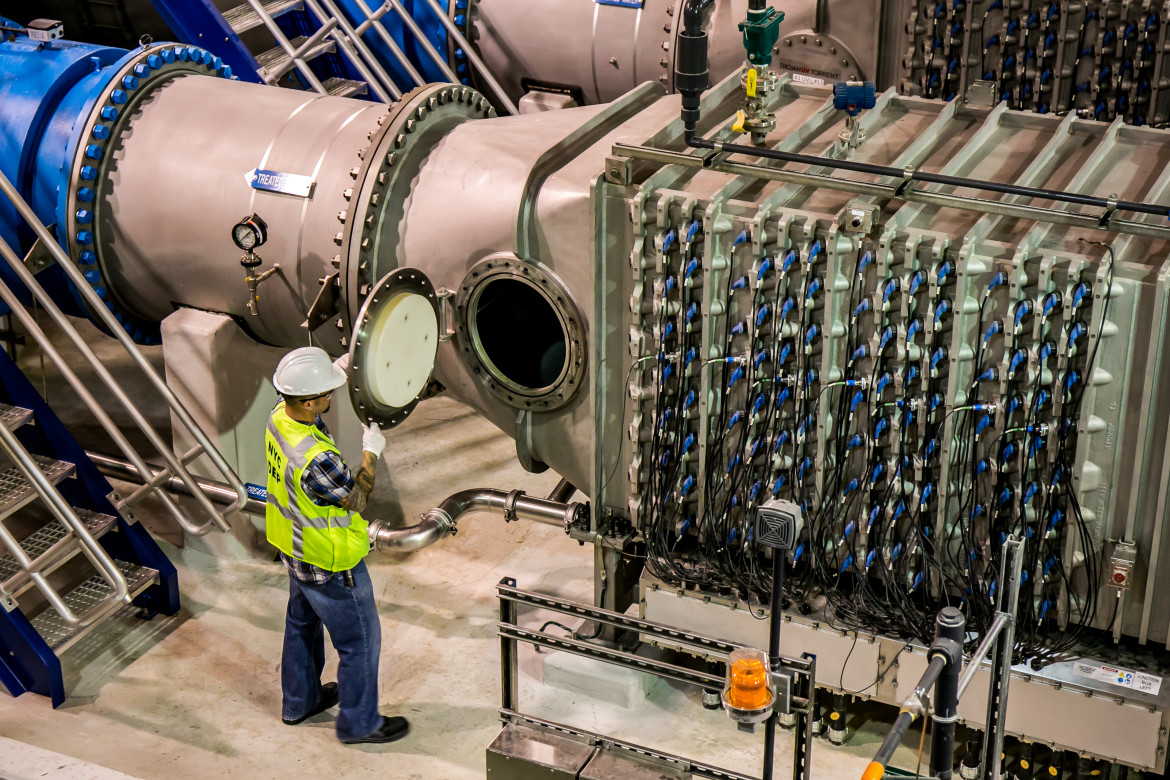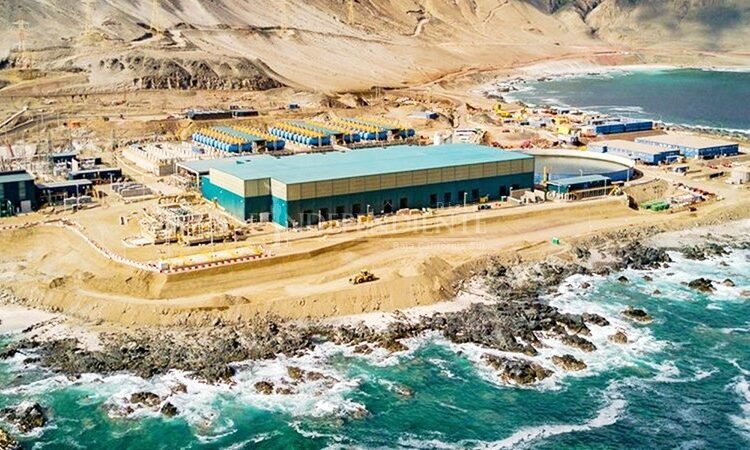In a pioneering leap towards sustainability and innovation, NEOM, Saudi Arabia, is embracing cutting-edge solar dome technology for water desalination. This bold move not only reduces production costs but also minimizes environmental impact, positioning NEOM as a global leader in the quest for sustainable water solutions. A Sustainable Approach to Water Desalination in NEOM
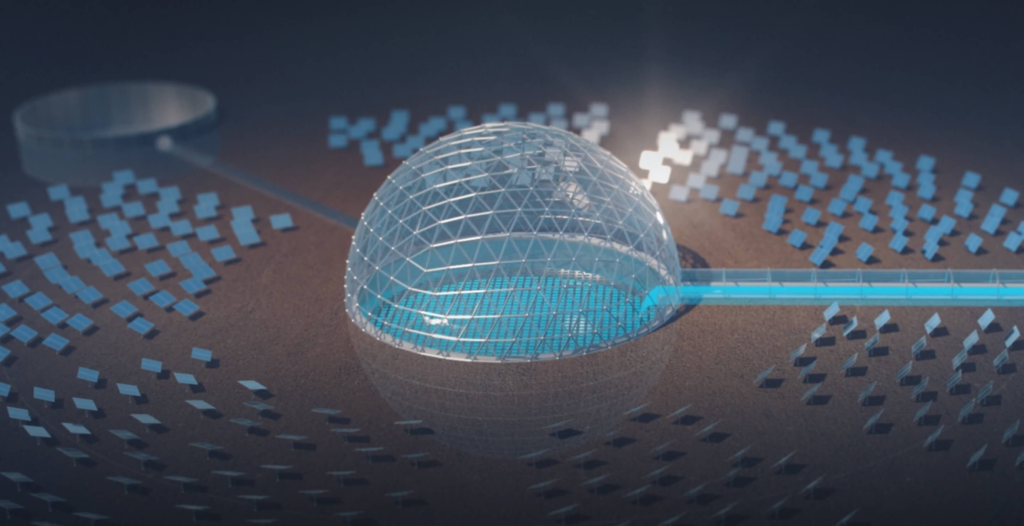
In this article, we will explore the revolutionary solar dome desalination project, its potential to transform the desalination industry, and its significant implications for the future of water treatment.
A Smart Solution to Water Scarcity
a. NEOM partners with UK-based Solar Water Plc. to develop the world’s first “solar dome” desalination plants in northwest Saudi Arabia.
b. The technology harnesses solar power to extract fresh water from abundant seawater resources, addressing the pressing issue of global water scarcity.
Sustainable and Cost-Efficient
One of the most remarkable aspects of the “solar dome” technology is its economic efficiency. The estimated cost of producing water through this method is approximately $0.34 per cubic meter.
This cost is significantly lower than conventional desalination plants that rely on energy-intensive reverse osmosis techniques. Moreover, the process results in more concentrated brine, reducing the environmental impact.
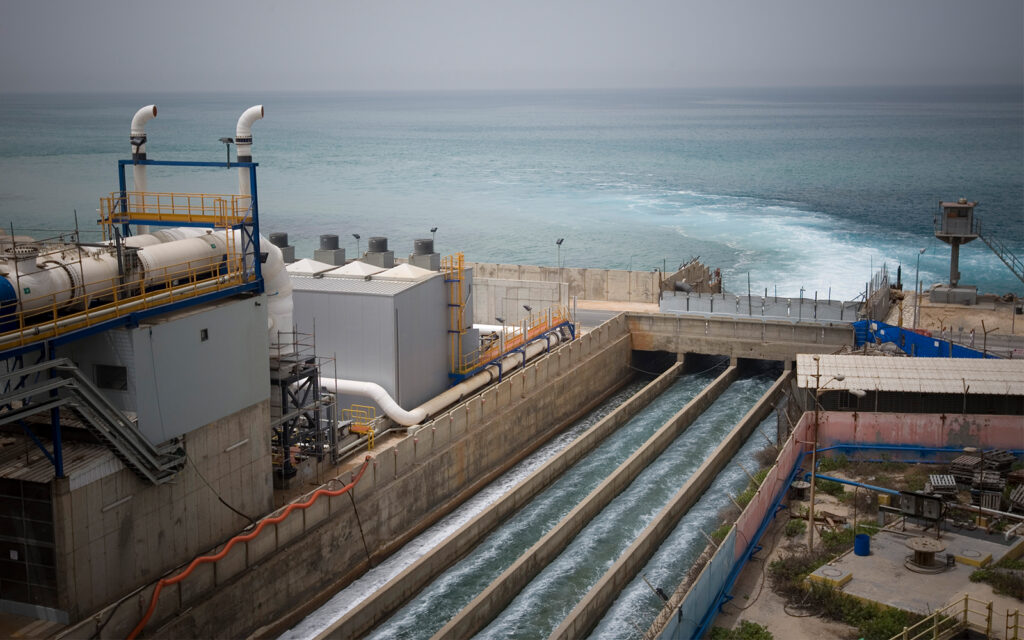
The reduction of brine discharge into the sea is a critical step in preserving marine ecosystems.
Environmental Conservation and Carbon Neutrality
NEOM’s commitment to sustainability aligns with Saudi Arabia’s National Water Strategy 2030 and the United Nations’ sustainable development goals.
The “solar dome” technology, developed in collaboration with Solar Water Plc., is a remarkable example of NEOM’s dedication to environmental conservation. Unlike many desalination plants worldwide, which heavily rely on fossil fuels, this innovative desalination technology is 100% carbon neutral. It is entirely sustainable, making it a true game-changer in the industry.
A New Future for Water Scarce Regions
With over one billion people worldwide lacking access to clean water daily, NEOM’s solar desalination project is poised to serve as a model for other water-scarce countries. T
These nations, grappling with the challenge of generating environmentally safe and sustainable sources of fresh water, can take inspiration from NEOM’s approach.
By embracing cutting-edge solar dome desalination techniques, NEOM is pioneering a highly effective, efficient water utility that is not only forward-looking but also environmentally responsible.
An Accelerator of Human Progress
a. NEOM’s adoption of the “solar dome” technology exemplifies its role as an accelerator of human progress, supporting innovation and conservation.
b. The project showcases NEOM’s dedication to delivering exceptional livability while being mindful of the environment.
Choosing the right pretreatment for the future of Water Desalination in Saudi Arabia
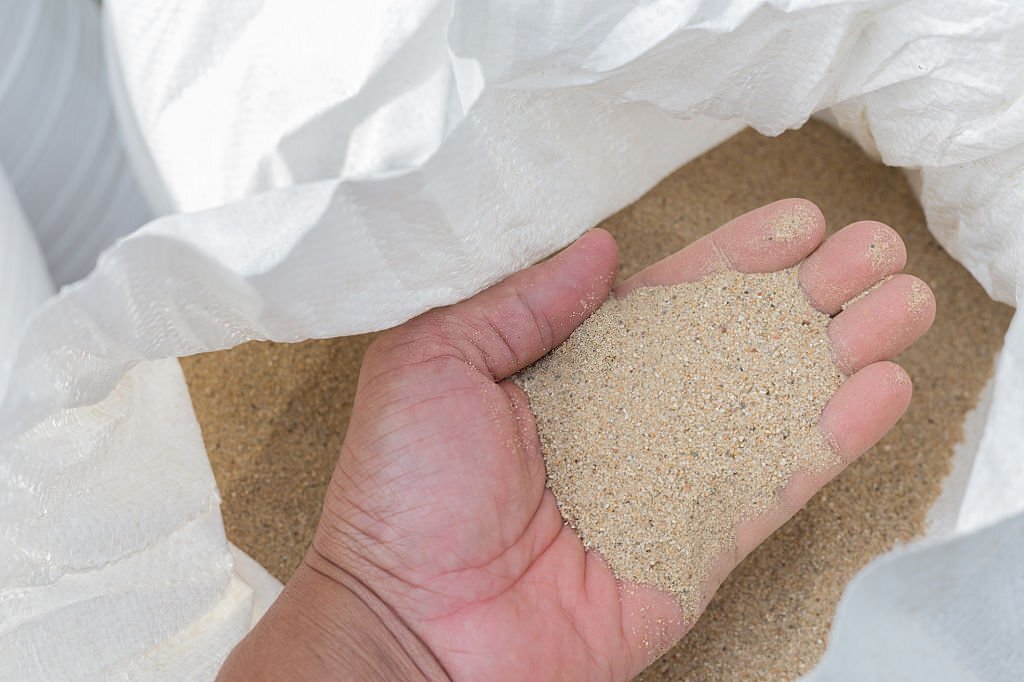
Water pretreatment in the desalination process is crucial to remove larger particles, suspended solids, and other impurities before subjecting the water to the main desalination method. While sand filters have been traditionally used in pretreatment, zeolite filter media can offer several advantages in terms of effectiveness and efficiency. The Evol
ution and Future of Water Desalination in Saudi Arabia
Here’s how zeolite filter media can enhance the water pretreatment process compared to sand:
- Filtration Efficiency: Zeolite has a higher filtration efficiency compared to sand due to its smaller particle size and uniformity. This allows for better removal of suspended solids and smaller particles, resulting in cleaner water.
- Ion Exchange Capacity: Zeolite’s ion exchange properties make it highly effective in removing heavy metals, ammonia, and other contaminants present in the water. It can selectively capture these ions and exchange them with less harmful ones, thereby improving water quality.
- Longer Filter Run Times: Zeolite filter media tends to have longer filter run times compared to sand filters. This means that the zeolite filters require less frequent backwashing or regeneration, reducing water and energy consumption during the pretreatment process.
- Reduced Pressure Drop: Zeolite’s smaller particle size and uniformity contribute to a lower pressure drop across the filter media. This helps maintain a consistent flow rate, reducing the energy requirements of the pretreatment system.
- Compact Design: Zeolite filters can achieve the same or higher levels of pretreatment efficiency as sand filters while requiring a smaller footprint. This compact design is especially beneficial in situations where space is limited.
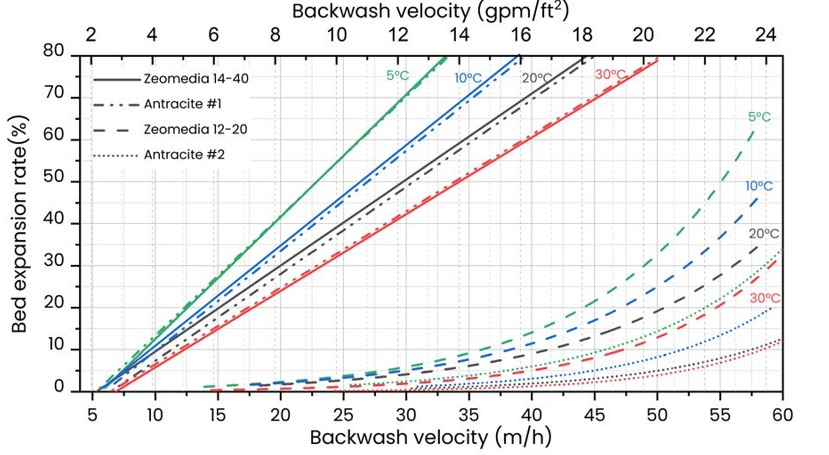
It’s worth noting that the specific design and configuration of the pretreatment system, including the type and size of zeolite media, will depend on the water source, quality, and the desalination process employed. The Role of Zeolite Filter Media The Evolution and Future of Water Desalination in Saudi Arabia
Future Prospects and Considerations in Water Desalination Process
Projections indicate that Saudi Arabia may require a desalinated water capacity of up to 4.5 billion cubic meters per year by 2040, double the current production levels. Achieving this ambitious target will demand continued innovation, research, and investment in desalination technologies.
In addition to technical advancements, demand management strategies will play a crucial role in balancing water consumption. Awareness campaigns and potential taxation on high water usage are among the methods that may be employed to reduce water demand.
NEOM’s groundbreaking solar dome technology represents a significant leap forward in water desalination. This innovative approach holds the potential to reshape the future of water treatment, not only in NEOM, Saudi Arabia, but across the world.
By harnessing the power of the sun, reducing costs, and minimizing environmental impact, NEOM’s project offers hope for a sustainable and water-secure future for regions facing water scarcity. It serves as a shining example of how a fresh perspective can lead to transformative solutions for some of the world’s most pressing problems.

